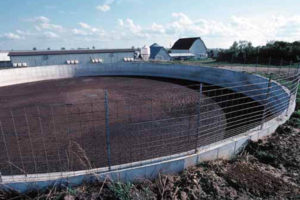A long-time interest of mine is behavioural economics, which is a relatively newfield bridging economics and psychology. Its main focus has been challenging the concept from classical economic theory that economic agents (i.e. people) will make rational decisions. In so doing, the field has illuminated many interesting features of how humans make decisions.
In 2010, the British government formed the Behavioural Insights Team, known unofficially as the “Nudge Unit”, to harness the power of behavioural economics to improve public services and policy. Similar groups have been adopted in many countries, including Canada where the Behavioural Insights Community of Practice was established in 2016.
An example of the power of these insights can be found in organ donation. European countries that have an opt-in policy, meaning no one is a donor unless they check a box to become one, typically see about 15% of the population becoming donors. In countries where the default is reversed so that people are automatically donors unless they opt out, the proportion of donors is typically 97%. This is a staggering difference considering that in each case people are free to either become a donor or not, and in both cases widespread support of organ donation is found when people are polled. Default options turn out to be extraordinarily powerful influencers of behaviour.
The deleted report
The BBC recently reported that a research paper from the Nudge Unit was posted online by mistake and promptly deleted. The paper presents principles derived from past government-led behaviour change initiatives that can be applied to encourage behaviour change on a scale necessary to reach net-zero carbon emissions. It concludes with a few examples, including options for policies to influence the consumption of more plant-based foods.
The section on influencing food choices starts by noting that food consumption is a habit-based behaviour that’s driven by cues in the environment, and that changes to the choice-environment are much more impactful than asking people to change.
The paper presents several policy options which I’ve summarized below.
Tax on high-carbon food production
The paper suggests a producer- or retailer- facing tax on foods with a higher carbon footprint to incentivize reformulation of current food choices in the market. The authors do note, however, that unsophisticated taxes could be highly regressive, and that it’s important for any changes to be perceived as fair to maintain public support. While not mentioned in the paper, another idea in a similar vein would be to remove any government subsidies from high-carbon food production and to introduce subsidies for low-carbon food production.
Environmental performance metrics
The paper suggests creating a public-facing rating system for supermarkets, allowing consumers to choose supermarkets based on this rating in order to foster competition between chains with respect to their environmental performance. In my view, a labelling system applied to food products themselves rather than supermarkets could be more useful and easier to work into the already existing food labelling infrastructure.
Changing defaults in public institutions
Governments spend a lot of money purchasing food for public institutions such as hospitals, schools, prisons, courts, offices, and military facilities. The paper points out that this is an enormous opportunity to normalize plant-based foods and signal their importance in terms of health and sustainability. It suggests changing the default offerings to be more sustainable, and notes that increasing plant-based offerings in canteen settings has been shown to have dramatic impacts on consumer choices. It also highlights the importance of using attractive substitutes for animal products.
Public messaging
While the paper frames asking the public to eat less meat and dairy as “a major political challenge”, it also notes the importance of including health and environmental benefits in any messaging. It recommends targeting people at the right moments in their life to yield better results, such as university students or first-time renters who may be learning to cook and buying their own groceries for the first time.
Takeaway
While the above policy suggestions are well known – see, for example, the recommendations in the Plant-Based Treaty – the lens of behavioural economics can help us identify the policies that should be prioritized in light of their greater potential impact.
While I’ve covered here only the small section outlining some possible policy directions for shifting diets, the real value of this work is in the more general presentation of how policy decisions can affect behavioural change. I strongly encourage anyone interested in environmental policy or advocacy of any type to read this paper.
For anyone interested in learning more about Behavioural Economics, the book Thinking, Fast and Slow by Daniel Kahneman is a great place to start.
Photo by Jasmin Sessler on Unsplash




